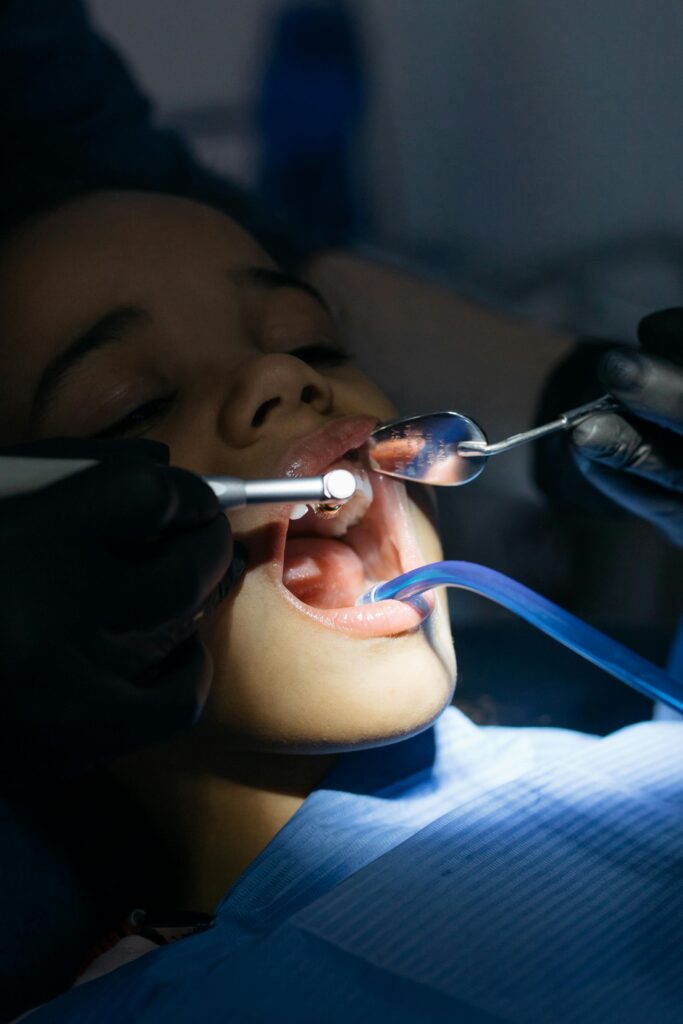Introduction
Good oral health is crucial for children, impacting their overall health, comfort, and self-esteem. Proper dental care helps prevent cavities, gum disease, and other issues, ensuring that your child develops healthy teeth and gums. This blog will cover the importance of oral health, common dental issues in children, and practical tips for maintaining a bright smile.
Table of Contents
1. Why Oral Health is Important for Children
Maintaining good oral health from an early age is essential for:
– Preventing Cavities: Cavities (tooth decay) are common in children and can cause pain and infections.
– Ensuring Proper Development: Healthy teeth help with speaking and chewing, and provide space for adult teeth to come in.
– Boosting Self-Esteem: Healthy, attractive teeth contribute to a child’s confidence and willingness to smile.

2. Common Dental Issues in Children
Several dental issues can affect children, including:
– Cavities: Caused by bacteria in the mouth that produce acid and erode tooth enamel.
– Gum Disease: Inflammation of the gums, often due to poor oral hygiene.
– Tooth Sensitivity: Can result from cavities, enamel erosion, or gum recession.
– Malocclusion: Misalignment of teeth or jaws that can affect chewing and speaking.

3. Tips for Maintaining Good Oral Health
Help your child develop healthy dental habits with these tips:
– Brush Teeth Twice Daily: Use a fluoride toothpaste and a soft-bristled toothbrush. Supervise brushing to ensure it lasts for two minutes and reaches all areas.
– Floss Daily: Flossing helps remove food particles and plaque between teeth that a toothbrush may miss.
– Regular Dental Check-ups: Schedule dental visits every six months for professional cleanings and check-ups. Early visits can help prevent issues and get your child used to the dentist.
– Healthy Diet: Limit sugary snacks and drinks that can lead to cavities. Encourage a balanced diet with fruits, vegetables, and dairy products for strong teeth.


4. Dental Care for Different Age Groups
Infants and Toddlers:
– Clean Gums: Wipe your baby’s gums with a soft, damp cloth before teeth appear.
– First Tooth: Begin brushing with a small, soft-bristled toothbrush as soon as the first tooth erupts.
Preschoolers:
– Encourage Brushing: Help your child brush twice a day. Use a pea-sized amount of fluoride toothpaste.
– Start Flossing: Begin flossing as soon as two teeth touch.
School-Aged Children:
– Dental Sealants: Consider dental sealants to protect teeth from decay.
– Orthodontic Evaluation: Check for any signs of misalignment or bite issues.
5. Addressing Common Concerns
Tooth Sensitivity: If your child complains about sensitive teeth, consult your dentist. Sensitivity may be due to enamel erosion or cavities.
Thumb Sucking and Pacifiers: Prolonged thumb sucking or pacifier use can affect dental development. Aim to stop these habits by age 3 or as recommended by your dentist.
Dental Emergencies: For dental injuries, such as a knocked-out tooth, seek immediate dental care. Keep the tooth clean and place it back into the socket if possible.
6. Promoting a Positive Dental Experience
Make dental care a positive experience for your child by:
– Setting a Good Example: Brush and floss your own teeth in front of your child to model good habits.
– Using Positive Reinforcement: Praise and rewards can motivate children to maintain their dental routines.
– Choosing a Child-Friendly Dentist: Find a dentist who is experienced in working with children and creates a welcoming environment.

7. Facts About Oral Health
Here are some interesting facts to highlight the importance of oral health:
– Early Habits Matter: Children who develop good oral hygiene habits early are more likely to continue these habits into adulthood.
– Fluoride Benefits: Fluoride helps to strengthen tooth enamel and prevent cavities. Many public water systems and toothpastes contain fluoride for added protection.
– Tooth Loss and Nutrition: Dental issues can affect a child’s ability to eat a balanced diet. Healthy teeth are crucial for chewing nutritious foods.
– Oral Health and Overall Health: Poor oral health can impact general health, including increasing the risk of heart disease and respiratory infections.
Conclusion
Understanding and maintaining good oral health is vital for your child’s overall well-being. By following these guidelines for brushing, flossing, and regular dental visits, you can help your child develop a healthy and confident smile. If you have any questions or need expert advice on your child’s dental health, don’t hesitate to contact Health Authentica for guidance and support.










